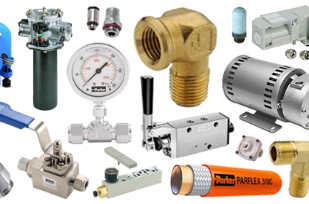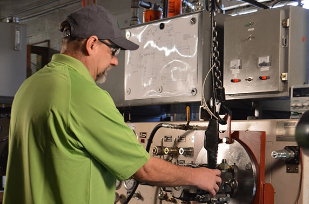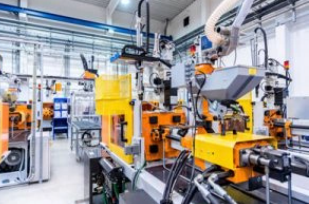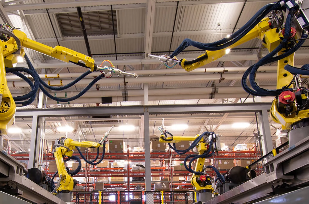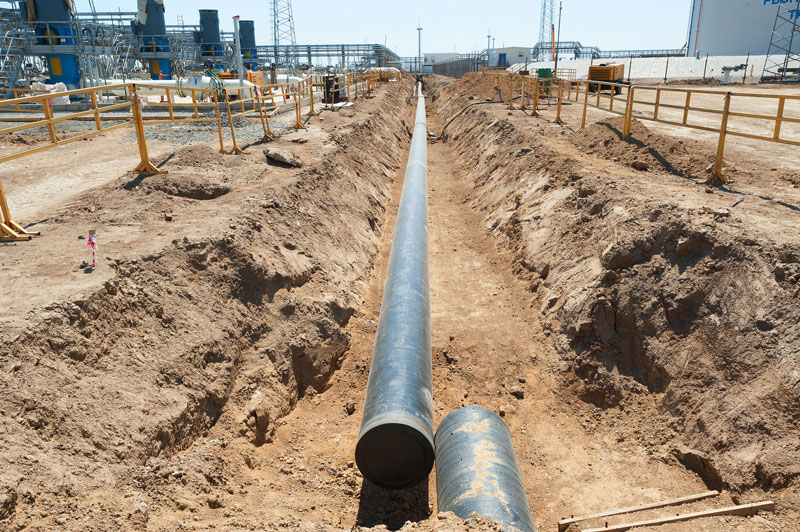
Typically when you think of work being done in an industrial setting, electric motors come to mind. However, when we talk about pipeline construction and the equipment needed to get the job done, your first thought should be about air motors.
Air motors are used for multiple applications in nearly every industry you can think of. They have a much higher power density than their electric cousin, and they’re much safer during heavy-duty applications.
To learn more about why air motors are great for pipeline construction, keep reading.
Air Motors and Pipeline Construction
With three times the fatalities of any other job in America, pipeline construction is a considerably dangerous job. This is largely due to the fact that pipelines are responsible for the transport of hazardous liquids such as crude oil, refined petroleum, and natural gas liquids. They’re also responsible for the transport and transmission of gas to residencies, commercial businesses, process facilities, and so on.
The danger is also partially due to the type of equipment used on the job site. Especially if you’re using an ill-equipped motor for the environment you’re working in, you’re going to run into a lot of problems from maintenance issues to the risk of possible mishaps and injuries.
Air motors are applicable for jobs that serve a variety of industries, and they’re among the most essential of all pipeline construction tools. In pipeline construction, air motors are typically used for screwing, clamping, and closing thresholds safely. They’re also used to power certain pipeline construction equipment, such as mining equipment.
Since they don’t require electrical power to produce their continuous rotary power, they won’t produce any sparks or noxious fumes. This makes them much more ideal to use in volatile atmospheres—such as underground, where the hazardous liquids and gases are.
Air motors are also easy to control. All it takes is a few minor valve adjustments to regulate the internal air pressure to change the flow and torque. This is crucial when working in a volatile atmosphere because it can save time and lives.
Of course, there are plenty more advantages of using air motors for pipeline construction.
The Advantages of Using Air Motors
Safety is arguably the biggest advantage of using air motors for pipeline construction. Of course, it’s not the only advantage—although we will speak more in-depth on safety because it’s an essential factor to a job well done.
Pipeline construction also takes a long time to complete, especially in volatile conditions. Using an air motor to power essential pipeline construction tools can make the job much more efficient and seamless. They stop and start instantly and provide variable torque and speed without the need for a control panel.
They’re also much easier to use and repair. With electric motors, you’d have to send the machine out to a special shop for repair, which can take a long time, slowing down pipeline production.
Here are the top five advantages of using air motors for pipeline construction:
1. Safety, Safety, & Safety
Once again, air motors are the safer choice for pipeline construction compared to the other types of motors available on the market.
As we’ve mentioned, since air motors don’t require electric power to function, they don’t put out any flammable byproducts such as sparks or fumes. This is critical since pipeline construction workers often work underground with extremely flammable substances. You also don’t have to worry about air motors overheating since they don’t get their power from an electrical source.
With air motors, there’s no risk of a fire or an explosion in these volatile areas.
Another safety advantage that air motors offer is the fact that they aren’t sensitive to any electromagnetic activity. An electromagnetic activity can mess with electric motors, causing them to have a power surge—or to lose power completely.
The last thing you want is a power surge to happen to your equipment when working on a dangerous job site. This can cause an explosion of large proportions resulting in serious injuries and likely fatalities.
This is because electric motors generate their own magnetic fields as an electric current runs through a coil. Air motors don’t utilize coils or electric currents, therefore they don’t generate an electromagnetic field that can be disturbed.
Lastly, an air motor’s power is generated through compressed air rather than electrical power, you don’t have to worry about pressure drops or jams causing an “air hammering” effect. Air hammering is especially dangerous in small spaces.
2. They Offer Great Flexibility
Flexibility in your machinery is key to working in a volatile atmosphere. Air motors are compact and have roughly 6 times the power-to-weight ratio of an electric motor, making them perfect for tight spaces.
Additionally, other types of motors require a more sophisticated control system, and they can only be positioned in one way. Air motors can function in any given position that makes sense for the job site, and varying their torque and speed is as simple as opening and closing a valve.
You can also use air motors in multiple rotation directions—clockwise and counterclockwise—and those directions can be reversed. Rapid reversals often cause damage to electric motors, but air motors can handle rapid reversals with ease.
Air motors also aren’t damaged by overloading, continuous stalling, or extreme temperatures. This is the type of flexibility a pipeline construction job site requires that an electric motor just won’t provide.
3. They’re Incredibly Reliable
As mentioned above, air motors aren’t easily damaged, whether it is from a rapid reversal in rotation, extreme temperatures, continuous stalling, or overloading. Not even at elevated cycles.
When an air motor stalls, it won’t overheat or deteriorate like an electric motor will. They also don’t generate any current peaks upon start-up. The constant air injection and expansion keeps air motors cool throughout use, even when they’re working at maximum capacity and high speeds.
Reliability is crucial when you’re in the middle of laying down a pipeline. If you’re using a motor that has a tendency to overheat or generate current peaks, you’re risking an adverse reaction to the environment you’re working in.
Adverse reactions from unreliable pipeline construction equipment can result in severe injury or worse, death.
4. They Contribute to Job Productivity
Air motors don’t rely on an external control panel involving a protection system, i.e., circuit breakers, contactors, variable speed drives, torque control, and so on. All they need to operate properly is an airflow output/pressure regulator.
This means that the overall installation and maintenance costs are reduced significantly. It also means that no special skills or authorizations are required to install replacement parts if necessary.
When your workers don’t have to wait for specialized personnel to come to diagnose and repair an issue or carry out the installation process, they can spend more time focusing on the job at hand. Additionally, they can fix any issues themselves, increasing their overall job productivity.
5. They Offer Precision Speed and Control
Air motors offer variable speeds at which they can operate, depending on their size. Electric motors only offer certain speeds at a higher price.
To adjust the speed on an air motor, all you have to do is increase the air pressure to the motor. From there, both the speed and torque will adjust to where you want them to be.
Additionally, air motors will work efficiently throughout their entire lifecycle. This gives you the precision needed each day to get the results you want and to meet your construction deadlines.
Electric motors don’t offer the same precision, variable speeds, or control as air motors. They also decrease in efficiency over time and likely need multiple repairs. That means you’ll end up losing time and productivity on the job.
Invest in a Gast Air Motor Today
Air motors come with a lot of advantages for dangerous jobs. Gast products, specifically air and gear motors, are well known for their durability and reliability—which are two essential components you need when working on a pipeline construction project.
Gast is a prominent name among industrial industries, and they offer air motors in both lubricated and non-lubricated options to fit all your pipeline construction (and non-pipeline construction) needs. Here at RG Group, we suggest lubricated air motors for volatile environments as they provide heat dissipation benefits.
Let us help you find the right pipeline construction equipment for your next job. Contact us today to learn more about our top of the line inventory and partners.

